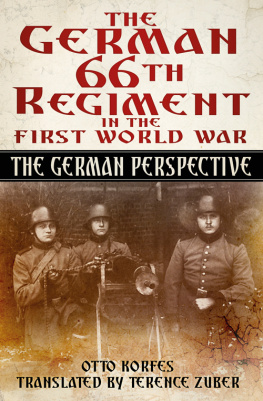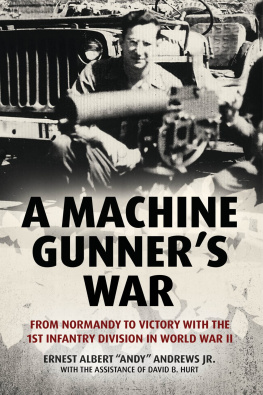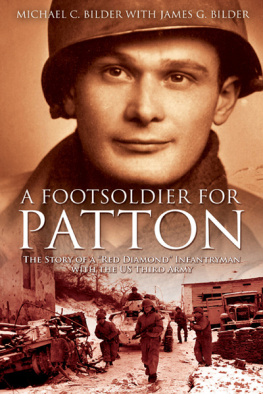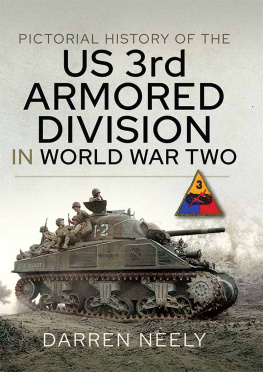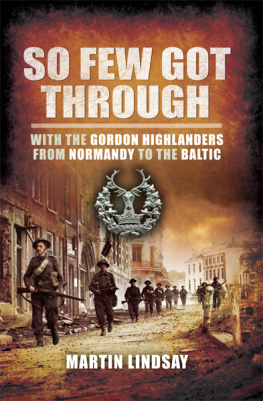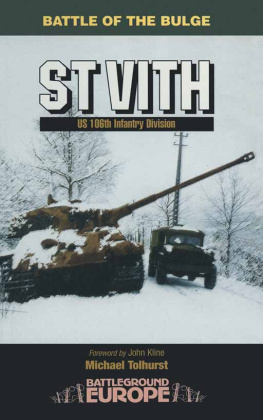Finding Foxholes
A World War II Infantry Route,
Then... and 48 Years Later
Faye Berger
with Russel Albrecht

North Star Press of St. Cloud, Inc.
St. Cloud, Minnesota
Copyright 2014 Faye Berger
Print ISBN : 978-0-87839-749-5
eBook ISBN: 978-0-87839-979-6
All rights reserved.
First Edition: March 2014
Published by
North Star Press of St. Cloud, Inc.
P.O. 451
St. Cloud, Minnesota 56302
northstarpress.com
Also by Faye Berger
Gumption, Lessons on Old Age, Loneliness, and a Hotdish
Dedicated to our World War II Veterans.
Table of Contents
Maps
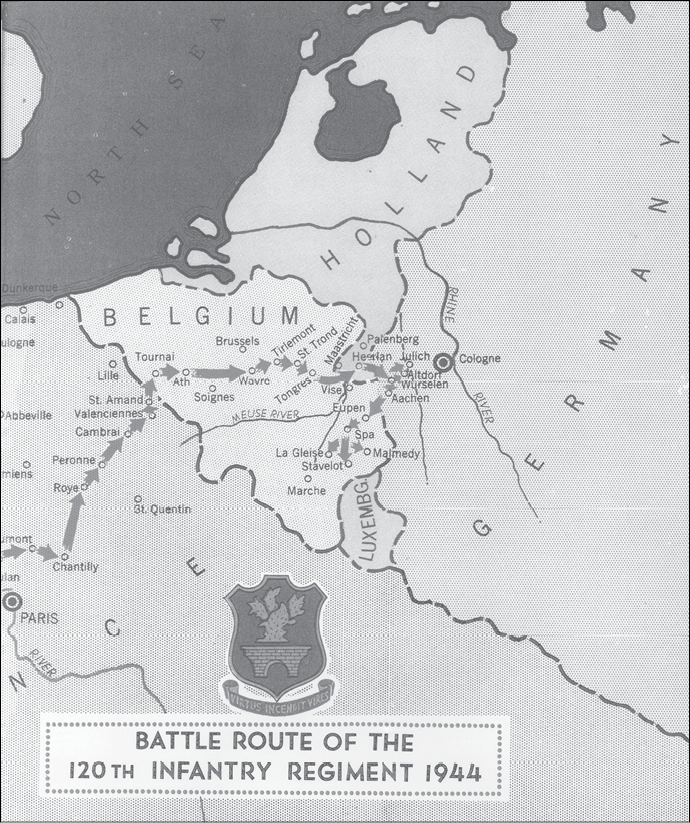
(History of the 120th Infantry Regiment)
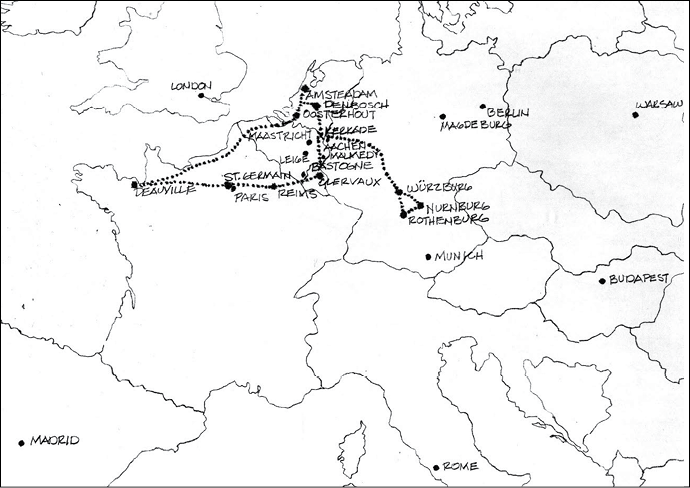
1992 Route of Road Trip (Authors Collection)
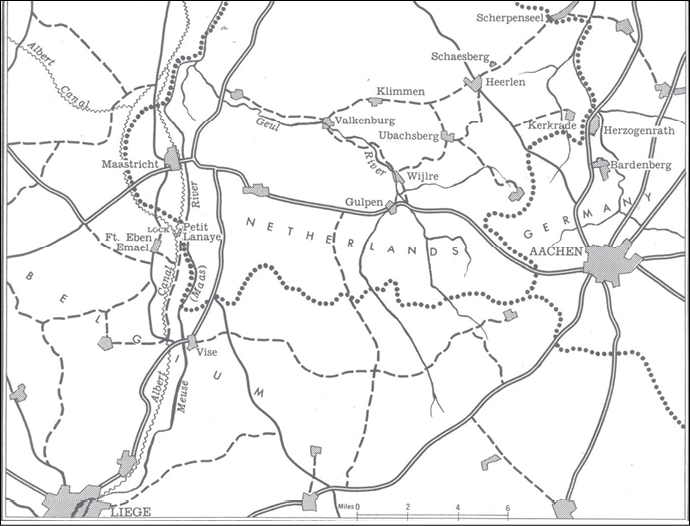
Fort Eben Email-Maastricht- Kerkrade (History of the 120th Infantry Regiment)
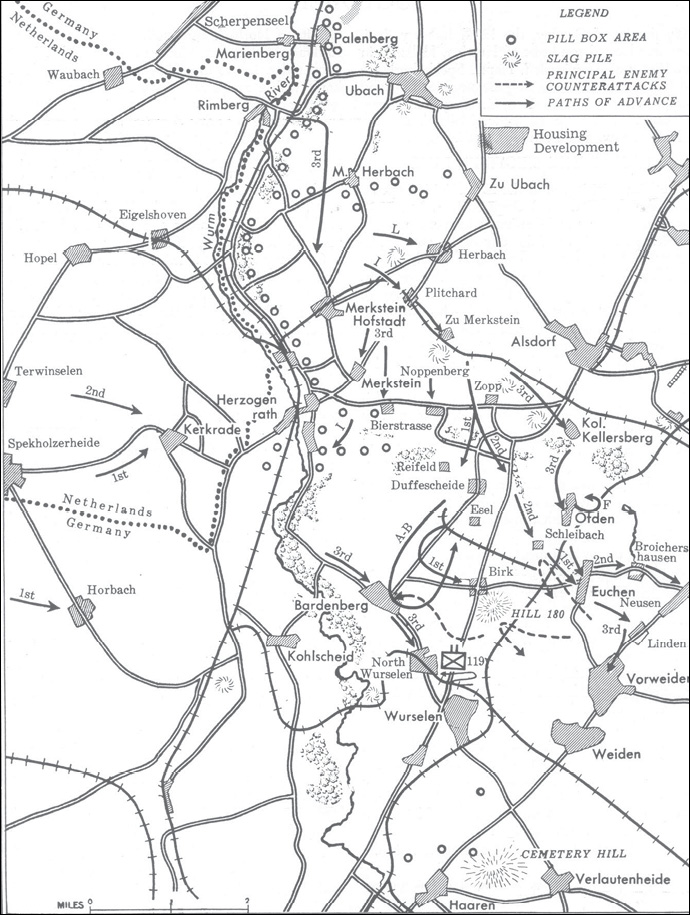
(History of the 120th Infantry Regiment)
Foreword
L i t tle did I know that a trip in 1992 would offer the framework for Finding Foxholes , now twenty-two years later. Certainly, had I known, I would have taken better notes. The trip was with my husband and my dad as we traveled across Europe to retrace Dads World War II infantry route. As it was, the car trip offered the perfect opportunity to audio-tape my dads stories of his combat experience.
Long known for his vivid and compelling storytelling, Private First Class Russel E. Albrecht from the small town of Morgan, Minnesota, brings to light the basic realities of war on the front lines: the hardships, the victories, the bonding of comrades, the duty to country, the sheer determination to stay alive. This is history first-hand.
The travelogue framework then gives a stage for Private Albrechts stories, filling in with historical backdrop plus modern-day dynamics of baby boomer and aging parent. A third dimension, the tidbits of 1940 through 1945 history preceding each of Private Albrechts accounts, draws the reader back to the war years.
Private First Class Russel E. Albrecht served in the Infantry of the U.S. Army, Thirtieth Division, 120th Regiment from March 27, 1944, to Nov ember 28, 1945. As a replacement, he landed at Omaha Beach, fought at the Siegfried line, the Ardennes, the Battle of the Bulge, crossing of the Rhine, then on to the German autobahn. He was wounded twice and was hospitalized for pneumonia, bronchitis, and pleurisy. A Bronze Star was awarded to him for calling artillery fire upon his own position. This first-hand account of a combat rifleman brings to solid ground the base nature of war.
My dad has been gone more than ten years now, but his stories are as alive as ever, and I am privileged to share them. But what might Russ Albrecht want out of all this? Its simple really: a renewal of patriotism. He might point a finger and tell us that, despite all of our countrys troubles, we still live in the best place on earth. Be thankful, hed say. We have freedom and opportunity. Fly the flag with honor. He also might lecture on the value of hard work. Just buckle down and tend to your knittin. Thats how things get done. I can see him saying that.
Although this is only one soldiers story, my hope is that it might spark countless storiesfrom all of our vets from all of our wars. We as a thankful country must always remember and honor our veterans, but also we need to hear their stories so that we can learn. And the stories we need to hear firstthe stories that are fast fadingare those from our most senior veterans, the veterans of World War II.
The Travelers
S ometimes a search for old memories can turn up something even better. Better as in extraordinary, or unique, even off-the-map coincidental. What if you ask yourself out of the blue, How did this happen? Well, that was what was in store for usmy dad, my husband, and mewhen we set off on our trip across Europe in 1992. Searching for World War II remembrances set us up in a big way for lessons and a very special find.
The trip came about as one of those light-bulb ideas that surfaced at just the right time in my life. Likely, I got the idea from one of those motivational speakers, who have always grabbed my attention, the ones who push you to achieve your goals. But what Im not sure about is the subject matter: war. Why was I the one in my family to have this heavy interest? After all, I was a girl, and I didnt even come along until after Dad came homea baby boomer born in 1947.
It was just Mom and my two older sisters, Diane and Mary Jane, who were only three and four years old, who waved goodbye to Dad. That was the spring of 1944. They were the ones carrying on life in the little town of Morgan, Minnesota, while he was gone those two years, waiting for his letters, saying their prayers for his safe return. My younger sister, Deb, came along much later in 1956, more than a decade after the war. With a spread of seventeen years among us girls, Deb was definitely the baby and definitely set apart from those war years.
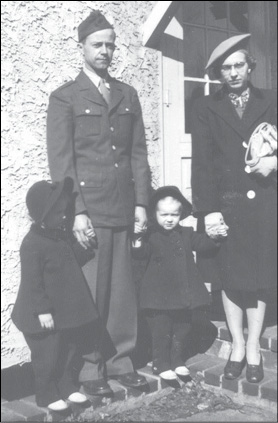
Dad and Mom with my older sisters, Mary Jane and Diane. (Authors collection)
For me, being in this middle category of siblings and spaced quite a distance either way, I spent several years like an only child. Some might think of it as lonely, but I thought it was more of a privilege. I had a bedroom all to myself. I also had a certain amount of autonomy what with Mom and Dad preoccupied with Mary Jane and Diane as teenagers and Deb as an infant. I busied myself with the usual paper dolls and coloring books, and if my dad was available, I tagged after him when he explored the woods or when he went fishingI thought he deserved a boy. I thought I was the one to fill in.
But I also spent a good deal of time imagining the dark and scary consequences of war. Those were the fifties when bomb shelter drills were common in schools, and we worried about the Cold War. I remember a particular fear at the sound of an airplane flying over our little town, and if I happened to be walking home from school with a plane high overhead, I would break into a run. But I knew a lot about the war too because of my dads particular gift for telling stories, and the stories he told most often were of his two-year duty in Europe in the infantry.
Private First Class Russel E. Albrecht landed at Omaha Beach and fought across France and Belgium, through the Battle of the Bulge and the crossing of the Rhine. Thats a lot of world travel for a small-town, family man in rural Minnesota back in the forties. And thats how he looked at it tooa chance to see beyond the tragedy of war. Well, first he had to survive it, but thats one of his stories.
So the stories were with me from early childhood on, and as an adult, I sought out books and movies about World War II, especially those about the fighting in Europe. Even songs from that eraGlenn Miller and the big bandshave always been sentimental for me. And up until Dads last days, I continued to prompt him for retelling the stories I practically knew by heart.
Next page

